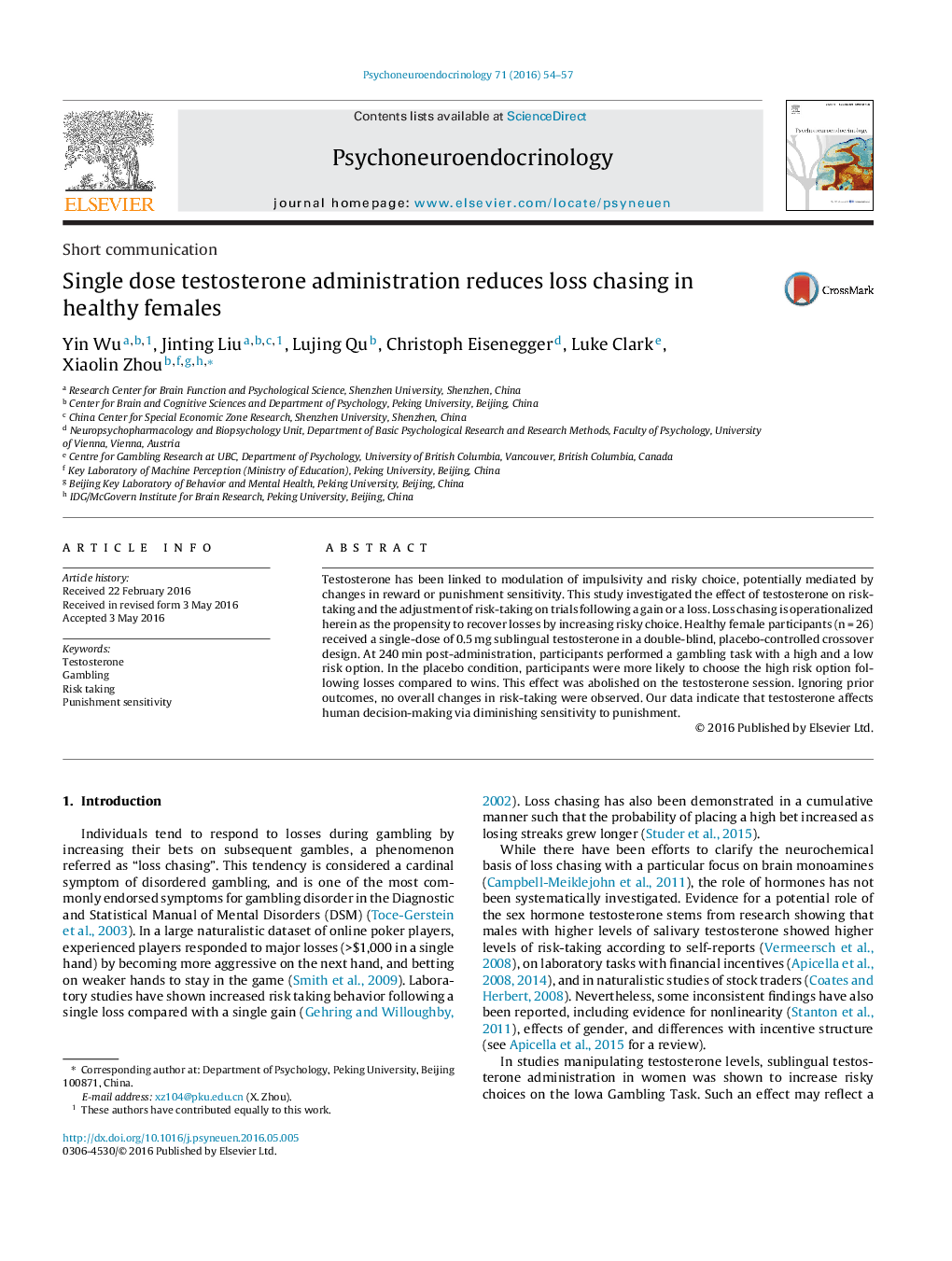| Article ID | Journal | Published Year | Pages | File Type |
|---|---|---|---|---|
| 6818011 | Psychoneuroendocrinology | 2016 | 4 Pages |
Abstract
Testosterone has been linked to modulation of impulsivity and risky choice, potentially mediated by changes in reward or punishment sensitivity. This study investigated the effect of testosterone on risk-taking and the adjustment of risk-taking on trials following a gain or a loss. Loss chasing is operationalized herein as the propensity to recover losses by increasing risky choice. Healthy female participants (n = 26) received a single-dose of 0.5 mg sublingual testosterone in a double-blind, placebo-controlled crossover design. At 240 min post-administration, participants performed a gambling task with a high and a low risk option. In the placebo condition, participants were more likely to choose the high risk option following losses compared to wins. This effect was abolished on the testosterone session. Ignoring prior outcomes, no overall changes in risk-taking were observed. Our data indicate that testosterone affects human decision-making via diminishing sensitivity to punishment.
Related Topics
Life Sciences
Biochemistry, Genetics and Molecular Biology
Endocrinology
Authors
Yin Wu, Jinting Liu, Lujing Qu, Christoph Eisenegger, Luke Clark, Xiaolin Zhou,
